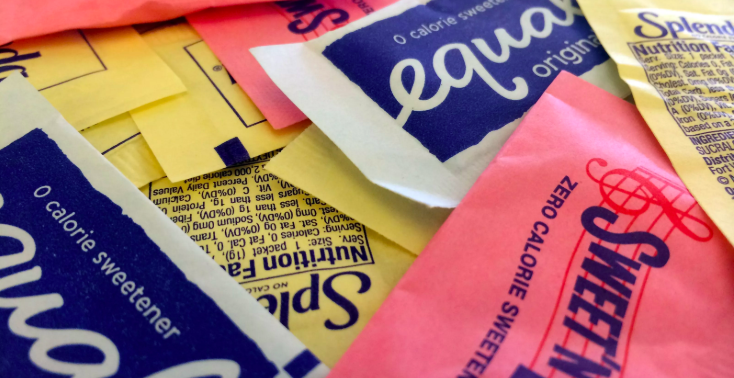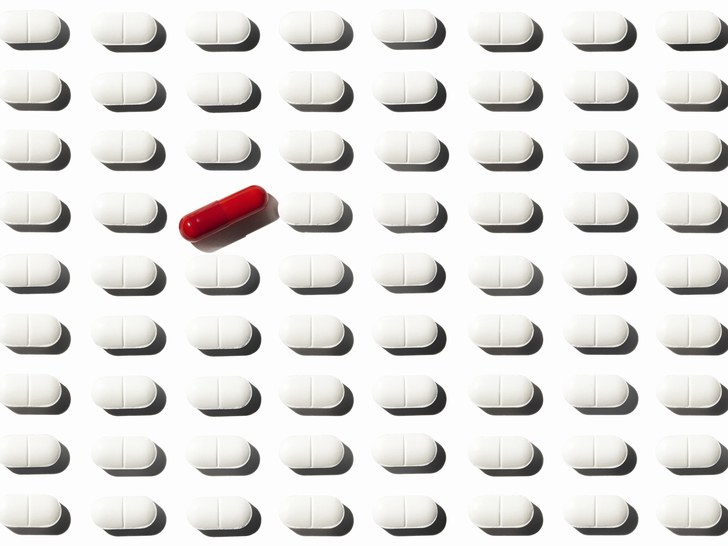You’ve probably noticed the torrent of gut health advice flooding the internet. This surge was triggered by the discovery of the gut microbiota – otherwise known as the 40 trillion microorganisms living in your gut.
Researchers continue to uncover how this ecosystem plays a role in nearly every biological function in the body, which makes anyone concerned with their health ask the obvious question:
How do you improve gut health naturally?
If you were to do a quick Google search, you’d find volumes of advice. As you slog through it all, you’ll start to notice that most is vague, while some is conflicting. It can be incredibly confusing, to say the least.
For example, there is a great gut microbiome myth being spread...
The Perfect Diet Myth
The idea that one diet is better than another is a total myth. For you as an individual, and for your gut microbiome. Also, the idea that certain foods improve gut health for everyone isn’t wholly accurate either. One thing gut microbiome science has certainly revealed is that there is no universal healthy diet. Everyone (and their gut microbiomes) need different foods.
The only piece of dietary advice that applies to all people when it comes to improving the gut microbiome, is that everyone should try to eat a variety of plant-based foods – although exactly which foods different from person to person. This is because variety promotes diversity.
Just imagine your microbes are a bunch of picky kids, each one prefers their favorite snack. When you eat a variety of food, it feeds a variety of microorganisms.
Many Viome customers are actually surprised to get back their recommendations and find supposed “healthy gut foods” like sauerkraut and kimchi are on their minimize list. This could be because both these foods are high in histamine, which that person’s gut can’t handle well.
So, what gut health advice applies to most people?
There are many things you can do to improve your gut health – Here are 19 science-backed ways! These results are not only based on the best peer-reviewed scientific literature but also what we are seeing in our Viome laboratories.
First and foremost, you can improve the health of your gut by avoiding damaging factors.
Avoid These 8 Gut Damaging Foods and Behaviors
1. Sugar
Sugar isn’t great for your gut microbiome because harmful bacteria and fungus like Candida albicans love to feast on it. High sugar diets have been shown to alter gut microbiome composition and function. 1 Yikes.
2. Artificial sweeteners
Artificial sweeteners are also bad news because they contribute to metabolic abnormalities and dysbiosis or imbalance of the ecosystem. Artificial sweeteners alter the composition and function of the gut microbiome in such a way that they can promote glucose intolerance, which can contribute to disease states. 2
While they might seem like a good alternative to sugar, it’s better to avoid artificial sweeteners altogether.

3. Genetically Modified Organism (GMO) foods
Many people know GMOs aren’t great but they don’t always know why. Why GMOs aren’t good for you has largely to do with your gut microbiome. GMO foods were modified to survive harsh pesticides like glyphosate, more commonly known as Round Up. 3 Essentially when you consume GMO foods, you’re increasing your intake of these chemicals, which are damaging to the gut.
Pesticides were developed specifically to take out microorganisms, so it’s no surprise that they do a number on the gut.
4. Preservatives
We know processed foods aren’t great for our health but they can also affect the gut microbiome. Specifically, preservatives such as polysorbate 80 and carboxymethylcellulose (CMPF), which are common emulsifiers in many processed foods that directly alter the gut microbiome composition. 4
Check food labels or better yet, avoid processed foods as much as possible to improve your gut health.
5. Antibiotics
Antibiotics cause widespread alterations of the gut microbiome because they don’t discriminate between good and opportunistic bacteria. 5 While antibiotics can be necessary, we use them too often and sometimes needlessly. Overall, we need to be more careful when taking antibiotics.
6. NSAIDS
Nonsteroidal anti-inflammatory drugs (NSAIDs), like Advil and aspirin, alter the composition of the gut microbiome and contribute to leaky gut. 6 Leaky gut happens when the gastrointestinal lining has gaps in its junctions, which allows particles to leak into the bloodstream. This can lead to inflammation and eventually autoimmune disease.
All too often we pop these pills when we have a minor injury or inconvenience. Now that you know they damage your gut, you might want to consider whether or not they are worth it.

7. Stress
Your gut and brain are in constant communication via the vagus nerve – through gut hormone signaling, neurotransmitter production, and other microbial metabolites. 7 Stress affects the gut microbiome and the gut microbiome can impact stress, making this a two-way street.
You probably already know reducing stress is beneficial to your health, but more specifically it’s also beneficial to your gut health.
8. Smoking
Smoking has been shown to change the composition of the gut microbiota. Studies have found that people who smoke have gut microbiomes that appear similar to those who are obese and who have conditions like inflammatory bowel disease. 8
We hope you aren’t smoking, but if you are, here’s another reason to quit!
While you’re reducing harm to your gut microbiome, you should simultaneously be improving it.
10 Tips to Boost Your Gut Health
9. Test Your Gut Microbiome
Viome uses metatranscriptomic technology and artificial intelligence to identify and optimize your diet to improve the diversity and richness of your gut microbiota – the cornerstone of good gut health.
With Viome, you’ll find exactly which foods you should eat to boost the beneficial bacteria and bring balance to your microbial ecosystem. Viome’s technology is superior to other tests on the market because it’s able to see what’s active within your system. Only with Viome will you know what foods are best for you.
10. Get outside and play
Over the past few decades, people have generally moved from the farm to the city. This means we don’t come in contact with nature like we used to. Generally, we don’t play outside as often or work on farms. 10 Because of this, we come across fewer microbes.
You can balance this shift by intentionally exposing yourself to a greater variety of microbes when you play outside. Schedule hikes, beach time, and get out in nature to expand your exposure to different ecosystems – especially when you travel!

11. Try intermittent fasting
Intermittent fasting is great for the gut microbiome. While going 9 to 12 hours without food might sound like a long time, you probably already come close if you stop eating around 9 o’clock at night and don’t eat breakfast until 9 o’clock in the morning. Certain bacteria thrive in a calorie dense environment, while others thrive in a calorie scarce environment. 11
So, see if you can put a little more time without food in between dinner and breakfast – your microbiome will thank you.
12. Get plenty of sleep
Ugh, few things are worse than not getting enough sleep – and while it feels downright terrible, poor sleep also can affect your gut microbiome composition. 12
While it’s important to get 7 to 8 hours a night, it’s just as important that your sleep is high quality. High quality means you’re getting into the deep, restorative stages of sleep. If you’re waking up feeling unrested or have a dramatic 3 p.m. slump every day, it’s worth looking into your sleep quality – because it can affect many aspects of your wellness.
13. Exercise the right amount
As if you didn’t need yet another reason to work out, exercise is also great for your gut microbiome. Exercise has been shown to enrich diversity, and increase beneficial bacteria. 13 You can boost your overall gut health with a brisk walk, jog, or even a yoga sesh. On the other hand, too much exercise isn’t great for your gut – but we are talking the kind of exercise mostly extreme athletes partake in.
14. Stick to a schedule
Just like you and me, many of your gut microbes run on 24 hour circadian rhythms. 14 Though scientists are still hard at work figuring out exactly how this works, sticking to a schedule could help everything run more smoothly.
We’ve long known that shift work and jet lag can contribute to disease states, and this just might be one of the reasons why.
15. Get a pet
Studies have found that children who have pets, also have lower rates of allergies and obesity. This is believed to be because the microbes on your furry friend increase your overall microbial diversity. This means your beloved pet may also help keep your gut healthy, too. 15

16. Keep your home microbiome healthy
Your home also has a microbiome and some scientists are wondering if our war on germs has gone too far here. 16 In fact, children who live in homes where the dishes are cleaned in a dishwasher are more likely to have allergies over those where everything is hand washed. This leads researchers to hypothesize that our over cleanliness is reducing beneficial microbe exposure.
17. Choose local, organic veggies
Local, organic vegetables not only skip the gut damaging pesticides, but they also have beneficial microbes from the dirt on them. In fact, you might not need to scrub those vegetables as thoroughly as we once thought. 18
Shop local and organic when possible, your gut microbes will be grateful.
18. Opt for a vaginal birth, if possible
During birth, a baby gets its first dose of microbes. When a baby is born vaginally, its first microorganisms are similar to its mother’s vagina. When a baby is born via C-section, their microbiome is inoculated with skin microbes, which has been associated with a higher risk of certain illnesses later in life. While C-sections are sometimes necessary, it’s important to spread the word that vaginal birth is important for developing a strong healthy microbiota. 19 It’s also important that researchers look for solutions to offset the effects of a C-section.

19. Breastfeeding over formula
Breastfeeding also helps feed the baby’s microbiota and builds a strong foundation. Interestingly, breast milk contains human milk oligosaccharides, which scientists initially thought were useless because the baby can’t digest them. We now know these sugars are there specifically to feed the microbiota. 20,21
There is no doubt about it – your gut microbiome has its hand in nearly every aspect of your health. This means we’ve got to start taking care of these little guys. Perhaps the single best thing that has come out of this discovery is this:
You have immense control over your gut microbiome
You have more control over your well being than we ever before realized. It’s time to be good to your gut microbiota – because they’re working their microbial butts off to be good to you.
Share this article with your loved ones so they can start being better hosts to their microbial ecosystems – we are in this together!
Resources:
- https://www.ncbi.nlm.nih.gov/pmc/articles/PMC1379072/
- https://www.ncbi.nlm.nih.gov/pmc/articles/PMC4615743/
- https://www.ncbi.nlm.nih.gov/pubmed/29635013
- https://gut.bmj.com/content/gutjnl/66/8/1414.full.pdf
- https://www.ncbi.nlm.nih.gov/pubmed/27028893
- https://www.ncbi.nlm.nih.gov/pubmed/26482265
- https://www.ncbi.nlm.nih.gov/pubmed/29276734
- https://www.ncbi.nlm.nih.gov/pubmed/29626219
- https://www.viome.com/blog/why-viomes-technology-superior-understanding-rna
- https://www.ncbi.nlm.nih.gov/pmc/articles/PMC5635058/
- https://www.ncbi.nlm.nih.gov/pmc/articles/PMC5988561/
- https://www.ncbi.nlm.nih.gov/pubmed/29031742
- https://www.ncbi.nlm.nih.gov/pmc/articles/PMC5357536/
- https://www.ncbi.nlm.nih.gov/pubmed/27793218
- https://www.ncbi.nlm.nih.gov/pmc/articles/PMC5382463/
- https://www.ncbi.nlm.nih.gov/pmc/articles/PMC3661444/
- http://pediatrics.aappublications.org/content/135/3/e590
- https://www.ncbi.nlm.nih.gov/pmc/articles/PMC3536091/
- https://www.ncbi.nlm.nih.gov/pubmed/23926244/
- https://www.ncbi.nlm.nih.gov/pubmed/28492938
- https://www.ncbi.nlm.nih.gov/pubmed/22350049
